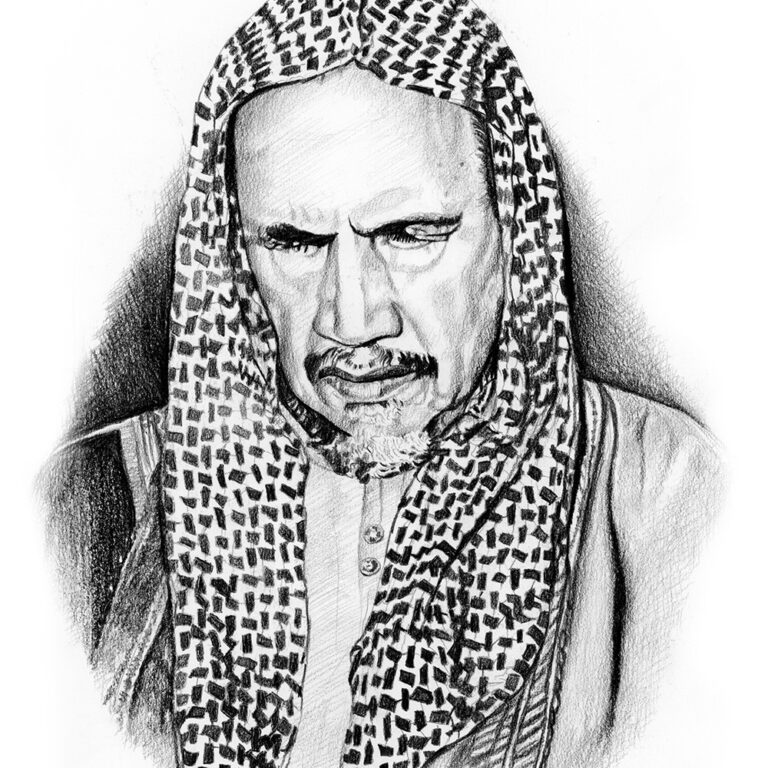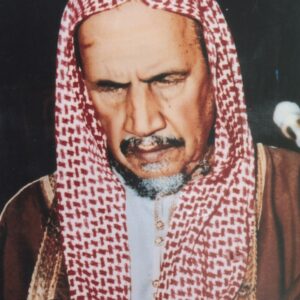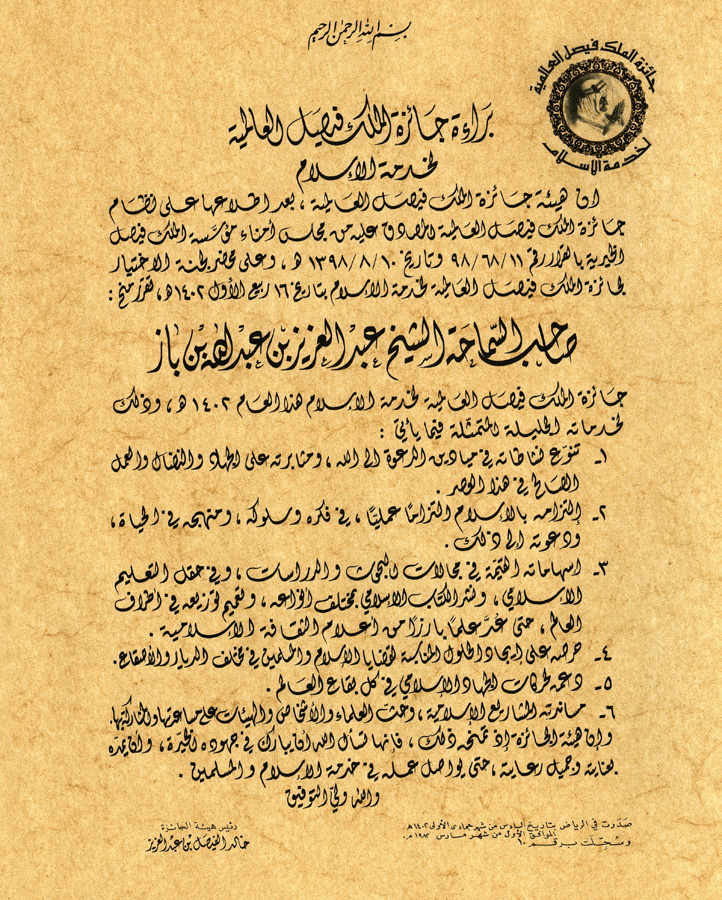

Shaikh Abd Al-Aziz Bin Baz
King Faisal Prize in Service to Islam 1982 Laureate
The duty of muslims is seeking Islamic knowledge and learning everything significant, so they pray to Allah with full consciousness, and leave forbiddens with full consciousness

Abdulaziz Bin Baz’s father died when he was three and by the age of 13; therefore, he had to work to help support his family. Despite this, he was relentlessly pursuing studies of the Qur’an, Hadith, Fiqh (Islamic jurisprudence), and Tafsir. By the age of 20, he lost his sight completely due to a mysterious eye infection. This did not deter him from continuing his education under the tutelage of many prominent teachers of Islam and Arabic language in his country until he became one of the most learned Islamic scholars in the world. He served first in the judiciary field and taught at the College of Shariah (Islamic Law) in Riyadh. Subsequently, he became a Vice-President, a President and then a Chancellor of the Islamic University in Al-Madinah. In 1975, he was named a Chairman of the Department of Islamic Research and Guidance. In 1993, he was appointed as a Grand Mufti, the highest religious authority in Saudi Arabia, as well as a Head of the Commission of Senior Islamic Scholars in that country. He was also a Chairman of the Constituent Council of the World Muslim League.
Shaikh bin Baz dedicated his life to the spiritual guidance of his students and the Muslim community at large, and was particularly concerned with the state of the Islamic world.
His intense knowledge of Islamic doctrine and sharia and significant contributions to Islamic research and education gained him the respect of Muslims worldwide. He authored numerous books and articles dealing with different aspects of the Islamic religion. He was also a prolific speaker both in public and in his mosque, and devoted much of his time providing counseling for people.
This biography was written in the year the prize was awarded.
- He published numerous books, of most significance:
- Al-Tabarruj Wa Khataruh (Dar Alam Al-Kutub), (1992).
- Sifat Salat Al-Nabi (Dar Al-Manahij), (1995).
- Bayan Huqooq Wolat Al-Umoor Ala Al-Ummah (Al-Riasah Al-Ammah Li Al-Efta’a), (1996).
- Al-Duroos Al-Muhimmah Li A’ammat Al-Ummah (2001), (Published after death).
- Al-Jawab Al-Mufeed Fi Hukm Al-Tasweer (Dar Al-Manahij), (2002), (Published after death).
- Shaikh Abdulaziz Bin Baz passed away in Makkah Al-Mukarramah on 13/5/1999.


